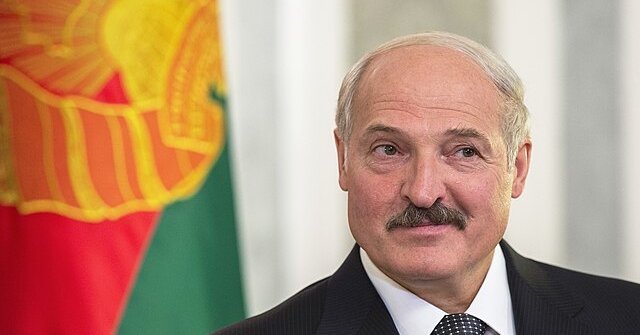Aleksandr Lukashenko is often referred to as “Europe’s last dictator”. He has been the President of Belarus since the country gained independence in 1994, and has thus been in power for 30 years. Although Lukashenko was at first elected democratically, he held a questionable referendum two years after his election in order to increase his power as president and to reduce the power of the legislature that could impeach him. He also abolished term limits in 2004, which is typical behaviour of a dictator. After these reforms were introduced, his power became near-absolute. The presidential election that occurred in August 2020, which Lukashenko yet again won, was widely considered to have been rigged. This resulted in the biggest street demonstrations of their kind in Belarus.
The United Nations estimates that over 27,000 people have been arrested since the mass protests began in the summer of 2020. One of the most prominent political prisoners is activist Maria Kalesnikava. On September 7th 2020, unidentified law enforcement agents abducted Kolesnikova. The next day, early in the morning, she was forcibly brought to the border with Ukraine. Despite being under pressure and intimidation to flee the country, Kolesnikova managed to break free from the car through the rear window, ripped apart her native passport, and returned on foot. When she arrived in Belarus, she was taken into custody right away, and has not been released since.
There have also been credible claims of protestors being tortured and killed. On the evening of November 11th 2020, in Minsk, sources claim that Raman Bandarenka was beaten up in the yard of his apartment building by masked attackers dressed in civilian clothes. He was then taken to a nearby hospital by an ambulance. Bandarenka was unconscious when the paramedics arrived. At the hospital, he was diagnosed with various head and brain traumas, bruises, and abrasions. After undergoing surgery in an effort to save his life, Bandarenka lapsed into a coma. He didn’t manage to recover, and passed away in the Minsk hospital on November 12th 2020.
In the years that followed, new localized forms of resistance have been cropping up around Belarus. These are small neighbourhood protests that are not as headline-grabbing as the large demonstrations that occurred in the summer of 2020, yet they do a good job at mobilizing local communities. Because this bottom-up approach is decentralized, it tends to be more flexible and adaptive to changing circumstances. It can thus respond quickly to emerging issues and adapt strategies based on local conditions.
Levitsky & Way (2002) use the term ‘competitive authoritarianism’ to describe post-Soviet countries such as Belarus. This term is used to define countries that are technically not authoritarian, but also not democratic. In Belarus, opposition parties are legally allowed to partake in elections, but the obstacles they encounter along the way make it realistically near-impossible to win. And while the Belarusian constitution guarantees democratic elections and civil liberties, this does not express the reality of what goes on in practice.
To see just how ‘free’ and ‘fair’ the elections in Belarus truly are, let us take a look at what happened to Lukashenko’s political opponents in the 2020 presidential election. Viktar Babaryka was arrested for money laundering and barred from contesting the election. Von der Leyen claimed that the accusations were unfounded and that the arrest was politically motivated. Sergei Tikhanovsky, a Belarusian YouTuber associated with the “Stop The Cockroach” movement, was also detained and barred from running. To make matters worse, the Belarusian government conveniently banned online polling for the election after Lukashenko appeared to be doing badly.
In its 2023 report on Belarus, Freedom House stated that Belarus is an authoritarian state with severely curtailed civil liberties and openly falsified elections. According to the report, many constitutional revisions were approved in February 2022 through a flawed and unjust referendum. Provisions guaranteeing President Lukashenko lifetime protection from prosecution were included in the approved changes. Furthermore, prior to the February 2022 invasion of Ukraine, Russian military forces used Belarus as a staging area, and Lukashenko allowed Russian troops to remain on Belarusian soil until the end of the year. Over the course of the year, the government purposefully hid details regarding the scope and magnitude of Belarus’ engagement in the conflict with Ukraine. Moreover, throughout the year, police brutally suppressed anti-war protests, detaining over 800 demonstrators in just the month of February. Security personnel reacted excessively to individuals who were allegedly interfering with Russian military supply routes and railroad connections; in addition, the authorities intimidated and harassed the families of Belarusian volunteers serving in the Ukrainian armed forces. All of this makes one question whether Belarus can really be classified as competitive authoritarian, instead of just simply authoritarian.
The enduring reign of Aleksandr Lukashenko in Belarus epitomizes a regime characterized by authoritarian practices, marked by the suppression of dissent, manipulation of democratic processes, and collusion with external forces. While pockets of resistance persist, challenging the regime’s grip on power, the stark reality of oppression raises questions about Belarus’ political identity. As we bear witness to the struggle for democracy and human rights in Belarus, it becomes imperative to stand in solidarity with those who defy tyranny and advocate for a future where freedom prevails over oppression.

Follow the comments: |
|
